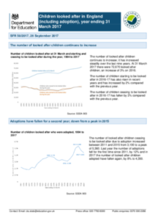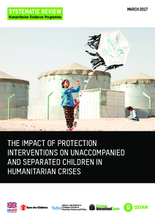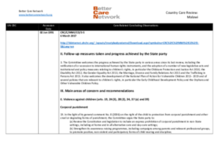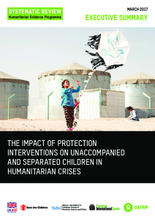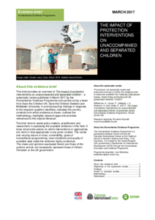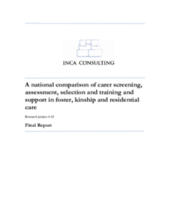Displaying 1581 - 1590 of 2221
In order to better serve youth trafficking victims, this study developed a Human Trafficking Screening Tool (HTST) and pretested it with 617 runaway and homeless youth and child welfare-involved youth.
This Statistical First Release (SFR) provides information about looked after children in England for the year ending 31 March 2017, including where they are placed, their legal status, the numbers starting and ceasing to be looked after, and the numbers who go missing or are away from their placement without authorisation.
The present study represents the first large-scale, prospective comparison to test whether aging out of foster care contributes to homelessness risk in emerging adulthood in the USA.
This systematic review examines the impact of protection interventions on unaccompanied and separated children, during the period of separation, in humanitarian crises.
This country care review includes the care-related Concluding Observations adopted by the Committee on the Rights of the Child.
This Executive Summary provides an overview of the systematic review.
This Evidence Brief provides an overview of the systematic review.
This paper reviews factors impacting the likelihood that a permanent placement will be attained for a child in care in greater depth, as well as several programs and initiatives implemented to support positive permanency outcomes in the United States.
In June 2015, the Australian Royal Commission into Institutional Responses to Child Sexual Abuse conducted public hearings in relation to out‑of‑home care (OOHC) and allegations of child sexual abuse occurring in OOHC settings (Case Study 24). In December 2015, the Royal Commission commissioned this national research report.
A case study approach was utilized to investigate individually and as a group, the aging out process of nine sexual minority adults, specifically, lesbian, gay and transgender (LGT) adults who transitioned from a Mid-Atlantic foster care system to adulthood.


